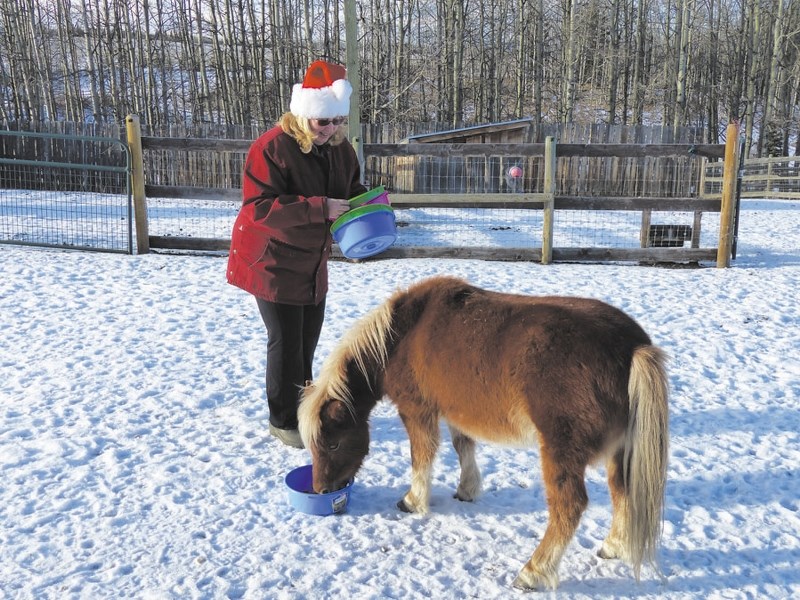The Christmas season is upon us – a time for friendship, family and fellowship for all including our furry friends. I always like to do something a little special for my four-legged friends and that something special usually involves something good for their tummies.
I am not a fan of hand feeding treats to my horses as I think that it encourages bad behaviour, but I still want to give them an enjoyable taste sensation. The simplest is putting some treats in a feeder – my critters enjoy cut up apples, carrots (my Canadian loves watermelon, but not too much of that available this time of year) and black-oiled sunflower seeds. There are many recipes available for cooking horse treats incorporating these items along with oats, molasses, honey and more, but I rarely have time for all of that.
One popular option is the ever-popular bran mash. This has been a traditional meal for ill or convalescing horses, older horses with dental issues or horses that have a tendency to colic. Many folks would tell you these mashes are good for horses travelling long distance shipping or for those who have had an unusually hard workout (according to Karen Briggs in her article in The Horse magazine).
There are good things and bad things about bran. While bran is high in various vitamin Bs, it is really a poor nutrient supplier and is only 10-12 per cent fiber (as compared to 20 per cent for beet pulp and 28-34 per cent for most grass hays, according to Karen Briggs). This makes bran a poor fiber supplement, which is contrary to popular belief. Also, bran has very high phosphorus content and is very low in calcium. The form of phosphorus actually interferes with calcium absorption, which can be a big problem. Calcium and phosphorus are critical in the growth and repair of bones, teeth, tendons and muscles. In a healthy, normal horse, these two elements are generally found in about a 1:1 ratio – an imbalance will have serious health implications. As a result, bran should not be fed to young, growing horses and should only be fed to mature horses in limited quantities (less than 10 per cent of their daily diet).
Having said all that, many horses really enjoy their nice, warm bran mash. A recipe I have used (from Karen Briggs) is as follows: place approximately one pound of dry bran in a large bucket.
Pour boiling water over the bran and stir to moisten. Cover the bucket with a large towel and let the bran steam for 15 minutes. Add molasses, sliced carrots and apples, a little oats or sweetfeed for taste and serve warm.
This makes enough for two horses or six miniature horses. Just stand back and listen to the happy slurping.
Merry Christmas to all my readers!




